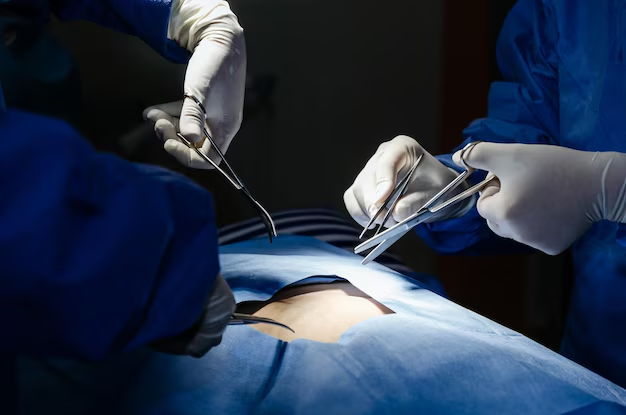Your Guide to What Not To Do After Cataract Surgery
What You Get:
Free Guide
Free, helpful information about Cataract FAQ and related What Not To Do After Cataract Surgery topics.
Helpful Information
Get clear and easy-to-understand details about What Not To Do After Cataract Surgery topics and resources.
Personalized Offers
Answer a few optional questions to receive offers or information related to Cataract FAQ. The survey is optional and not required to access your free guide.
Navigating Recovery: Avoid These Mistakes After Cataract Surgery
For anyone undergoing cataract surgery, the post-operative phase is critical to achieving the best possible outcome. Making strides in your recovery involves knowing what to do—and importantly, what not to do. Whether you’re already scheduled for the procedure or you’ve just come out of surgery, understanding these do-nots is crucial for ensuring a smooth healing process and safeguarding your newly-restored vision.
Understanding Cataract Surgery Recovery
The Basics of Healing
Cataract surgery, although common and generally safe, demands a period of healing where careful attention to detail and precautions play pivotal roles. Typically, full recovery can take about a month, but the first two weeks are especially crucial. Following specific guidelines during this time can significantly influence the way you heal.
Common Patient Concerns
Patients often worry about how soon they can resume normal activities post-surgery. It’s not uncommon to feel a mix of excitement at improved vision and hesitation about possible complications. Being informed about what to avoid right after surgery can assuage these worries, helping you focus on healing rather than potential pitfalls.
What Not to Do Immediately Following Cataract Surgery
🚫 Avoid Heavy Lifting
In the early days after your surgery, it’s vital to steer clear of heavy lifting or bending over. Such activities can strain the eye and potentially interfere with the healing process. Instead, prioritize rest and avoid any physical exertion that could increase intraocular pressure.
🚫 Skip the Swimming Pools
Swimming pools, hot tubs, and natural bodies of water should be off-limits for several weeks post-surgery. Water harbors bacteria that can lead to infections, presenting unnecessary risk as your eyes are healing. If you need to bathe, stick to showers and be cautious to minimize getting water into your eyes.
🚫 Say No to Eye Rubbing
Your eyes might feel itchy or slightly uncomfortable after surgery, but rubbing them is a definite no-no. This can lead to infections or even worsen the swelling. Rather than rubbing, use prescribed eye drops to alleviate discomfort and follow your doctor’s instructions meticulously.
🚫 Use of Makeup Should Be Delayed
Cosmetics and eye makeup are breeding grounds for bacteria. It’s recommended to pause the use of eye and facial makeup to safeguard against infections. Waiting a couple of weeks before reintroducing makeup can help protect your eyes as they heal.
🚫 Avoid Driving
Your vision may fluctuate for a few days post-surgery. It is advisable to postpone driving until your doctor gives you the green light. Safety should always come first, and driving too soon could put both you and others at risk.
Long-term Considerations for Cataract Surgery Recovery
🔍 Post-Surgery Eye Protection
Wearing sunglasses post-surgery isn’t just about comfort; it’s a necessary protective measure against UV rays and other irritants. Prolonged exposure to bright light can strain your healing eyes, so it’s wise to invest in quality sunglasses that offer both protection and comfort.
🍎 Focus on a Healthy Lifestyle
A balanced diet and adequate hydration will support your recovery process. Antioxidants found in fruits and vegetables promote eye health. Additionally, avoid smoking, which can delay healing and increase the risk of complications.
📅 Adherence to Follow-Up Appointments
Your post-operative success largely hinges on attending all scheduled follow-ups with your healthcare provider. These visits allow your doctor to monitor the healing process and catch any potential issues early. Do not skip these appointments, even if you feel fine.
Tips for a Smooth Recovery
Setting up a Recovery Plan
To ease your transition post-surgery, planning your activities can make a significant difference. This includes ensuring you have transportation to appointments, help with daily tasks, and a comfortable environment that promotes relaxation and recovery.
Monitoring Symptoms: Recognizing Red Flags
While most recoveries proceed without complications, it’s crucial to monitor for symptoms like persistent pain, vision changes, or signs of infection such as redness and discharge. If these occur, contacting your healthcare provider promptly is important to address any issues before they escalate.
Practical Summary: Key Post-Operative Tips
To encapsulate the essentials, here is a distilled list of don'ts for your cataract surgery recovery:
- ❌ Avoid lifting heavy objects: Minimizes strain on your eyes.
- ❌ Stay out of pools and tubs: Prevents infection from bacteria.
- ❌ Resist the urge to rub your eyes: Protects against irritations and complications.
- ❌ Postpone makeup routines: Keeps bacteria away from healing eyes.
- ❌ Hold off on driving: Ensures safety during vision adjustment.
Preparing for the Journey Ahead
While the guidelines above highlight activities to avoid, they also underscore a proactive approach to your healing journey. By embracing the recommended post-surgical lifestyle modifications, you pave the way for a successful recovery.
Remember, each step towards recovery isn’t just about regaining vision but enhancing your quality of life. Prioritizing care and heeding precautions can lead to seamless healing, leaving you to enjoy your improved vision with peace of mind. The commitment to safeguarding your eyes is as much about today’s practices as it is about tomorrow’s visual experiences.
What You Get:
Free Cataract FAQ Guide
Free, helpful information about What Not To Do After Cataract Surgery and related resources.

Helpful Information
Get clear, easy-to-understand details about What Not To Do After Cataract Surgery topics.

Optional Personalized Offers
Answer a few optional questions to see offers or information related to Cataract FAQ. Participation is not required to get your free guide.


